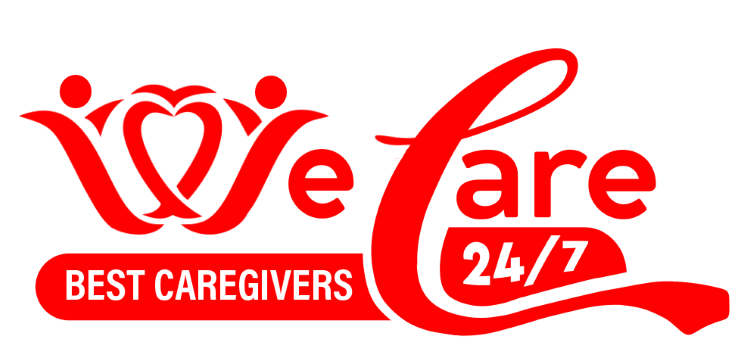How to Apply for Medicaid in New Jersey: A Step-by-Step Guide

Navigating New Jersey Medicaid for In-Home Care
For many New Jersey families, understanding and applying for Medicaid can feel like a complex journey. Yet, for seniors needing in-home care, adult children seeking support for aging parents, and caregivers assisting individuals with disabilities, Medicaid offers a vital pathway to essential services. This comprehensive guide from WeCare Home Caregivers will walk you through the application process for Medicaid in New Jersey, often known as NJ FamilyCare, providing clarity and actionable steps.
What is New Jersey Medicaid (NJ FamilyCare)?
Medicaid is a federal and state partnership that provides health coverage to low-income individuals and families. In New Jersey, this program is administered through NJ FamilyCare, encompassing various programs designed to meet different needs. It provides comprehensive health insurance, including doctor visits, hospital stays, prescription drugs, mental health services, and, importantly for our audience, long-term services and supports for eligible individuals.
The program aims to ensure that residents who meet specific income and resource criteria can access necessary medical and personal care without overwhelming financial burdens. For those requiring care in their homes, NJ FamilyCare can be a significant resource, helping to cover costs associated with personal care assistants, skilled nursing, and other supportive services that enable individuals to maintain independence.
Understanding New Jersey Medicaid Eligibility Requirements
Eligibility for Medicaid in New Jersey hinges on several factors, including income, assets, age, disability status, and household size. It’s important to remember that specific thresholds can change annually, so verifying current figures is always advisable. The New Jersey Department of Human Services oversees these guidelines, working to ensure the program serves those most in need.
Income and Asset Limits for NJ Medicaid
Medicaid programs generally have strict income and asset limits. For seniors and individuals with disabilities seeking long-term care services, these limits often differ from those for general health coverage. As of recent guidelines, income limits are typically tied to a percentage of the Federal Poverty Level (FPL), varying based on the program and household size. For example, for Aged, Blind, and Disabled (ABD) Medicaid, there are specific monthly income caps.
Asset limits also apply. These include countable resources like bank accounts, stocks, bonds, and some real estate. Certain assets are usually exempt, such as a primary residence (up to a specific equity limit), one vehicle, and personal belongings. It’s strongly recommended to consult the New Jersey Department of Human Services or a qualified elder law attorney for the most current and personalized information regarding these limits.
Key Medicaid Programs Relevant to In-Home Care
For New Jersey residents needing assistance with daily living activities at home, two primary Medicaid pathways are often considered:
- Aged, Blind, and Disabled (ABD) Medicaid: This program provides health coverage for individuals who are 65 or older, blind, or have a permanent disability, and meet specific income and resource requirements. While it offers general medical benefits, it also serves as a gateway to long-term care services.
- Managed Long Term Services and Supports (MLTSS): This program is designed specifically for individuals who require a nursing home level of care but prefer to receive those services in their home or community. MLTSS operates through managed care organizations (MCOs) and can cover a wide range of in-home care services, including personal care assistance, adult day care, respite care, and home modifications.
MLTSS is particularly beneficial for our audience, as it aims to keep individuals out of institutional settings and supports them in their preferred environment. Eligibility for MLTSS involves a medical assessment to determine the need for a nursing home level of care, in addition to financial eligibility.
The Step-by-Step Application Process for NJ Medicaid
Applying for Medicaid in New Jersey involves several stages. Being prepared and organized can help streamline the process. While it may seem daunting, breaking it down into manageable steps makes it more approachable.
Step 1: Gather Necessary Documents
Before you begin the application, collect all required documentation. Having these items ready will prevent delays and ensure a complete submission. Essential documents typically include:
- Proof of Identity: Driver’s license, state ID, passport, or birth certificate.
- Proof of New Jersey Residency: Utility bills, lease agreement, or property tax bill.
- Proof of Income: Recent pay stubs, Social Security benefit statements, pension statements, tax returns, or unemployment benefit statements for all household members.
- Proof of Assets: Bank statements (checking, savings, CDs), investment statements (stocks, bonds, mutual funds), life insurance policies with cash value, and property deeds.
- Medical Information: Doctors’ names, contact information, and details of any disabilities or ongoing medical conditions.
- Social Security Numbers: For all applying household members.
- Proof of Citizenship or Immigration Status: Birth certificate, U.S. passport, or immigration documents.
- Insurance Information: Details of any existing health insurance coverage.
For long-term care applications, you may need to provide more extensive financial records, including detailed transaction histories for several years (often five years, known as the “look-back period”) to ensure compliance with transfer-of-asset rules.
Step 2: Choose Your Application Method
New Jersey offers several convenient ways to apply for NJ FamilyCare:
- Online: The most common and often quickest method is through the NJ FamilyCare website. This portal allows you to complete the application electronically and upload supporting documents.
- By Mail: You can download the application form from the NJ FamilyCare website, print it, complete it, and mail it with copies of your documents to the address provided on the form.
- In-Person: You can apply at your local County Board of Social Services (CBSS) office. This option allows you to receive assistance from staff members and ask questions directly.
- By Phone: While not a full application, you can call the NJ FamilyCare Health Benefits Coordinator for assistance and to request an application be mailed to you. The toll-free number is 1-800-701-0710.
For seniors seeking MLTSS, the application process often begins with contact through the Aging and Disability Resource Connection (ADRC) or by calling the NJ FamilyCare office to initiate an assessment.
Step 3: Complete the Application Form
Fill out the application form thoroughly and accurately. Provide all requested information, paying close attention to details regarding income, assets, household members, and medical needs. Any missing or incorrect information can lead to delays or a denial of benefits. If you are unsure about a question, it is better to seek clarification than to guess.
When applying for a senior or an individual with disabilities, ensure you accurately describe their medical condition and care needs. This information is particularly important for determining eligibility for programs like MLTSS, where a comprehensive health assessment will follow.
Step 4: The Application Interview (If Required)
After submitting your application, you may be contacted for an interview. This interview, which can be conducted in person, over the phone, or virtually, is an opportunity for the Medicaid caseworker to clarify information, verify details, and request any additional documents. Be prepared to answer questions about your financial situation, living arrangements, and health status.
For MLTSS applications, a clinical assessment will be scheduled by a qualified professional. This assessment evaluates the individual’s functional abilities and determines if they meet the nursing home level of care criteria. This is a critical step for accessing in-home long-term care services.
Step 5: Awaiting a Decision
Once your application and all supporting documents are reviewed, and any necessary interviews or assessments are completed, the County Board of Social Services will make a decision. The processing time can vary, but applicants are typically notified by mail. If approved, the notice will include information about your coverage start date and how to select a managed care organization (MCO) if applicable.
If your application is denied, the notice will explain the reason for the denial and provide information on how to appeal the decision. Do not be discouraged by an initial denial; sometimes, it’s due to a small error or missing information that can be easily corrected.
Step 6: Understanding and Exercising Your Right to Appeal
If your Medicaid application is denied, or you disagree with the level of services approved, you have the right to appeal the decision. The denial letter will provide instructions on how to request a fair hearing. This appeal process allows you to present your case to an impartial hearing officer and offer additional information or arguments to support your eligibility.
Seeking legal aid or advocacy from organizations specializing in elder law or disability rights can be very beneficial during the appeals process. They can help you understand the specific reasons for denial and prepare a strong appeal.
Post-Approval Considerations for New Jersey Medicaid
Once approved for NJ FamilyCare, there are ongoing responsibilities to ensure continued coverage and appropriate benefits.
Annual Renewals and Reporting Changes
Medicaid eligibility is typically reviewed annually. You will receive a renewal packet in the mail, which you must complete and return by the deadline to maintain your benefits. It’s also vital to report any changes in income, assets, household size, or residency to the County Board of Social Services as soon as they occur. Failure to report changes could lead to a loss of benefits or overpayments that you might need to repay.
Staying proactive with these requirements ensures a seamless continuation of essential services, including in-home care that supports daily living and quality of life.
Common Challenges and Expert Tips for Applying
While applying for Medicaid provides substantial benefits, the process can present challenges. Here are some common hurdles and tips to navigate them effectively:
- Complexity of Paperwork: The application forms can be lengthy and confusing. Tip: Take your time, read all instructions carefully, and don’t hesitate to seek assistance from a trusted family member, a caseworker, or a professional.
- Asset Planning: For seniors, understanding asset rules and the look-back period is critical. Tip: Consider consulting an elder law attorney in New Jersey well in advance of applying for Medicaid. They can offer guidance on legal ways to structure assets within Medicaid guidelines.
- Medical Assessment Hurdles: The MLTSS clinical assessment can be stressful. Tip: Be transparent about all care needs, even those that seem minor. Ensure the assessor has a complete picture of the individual’s functional limitations.
- Delays in Processing: Applications can take time to process. Tip: Submit a complete application with all required documents from the start to minimize back-and-forth. Keep copies of everything you submit.
- Communication Gaps: Sometimes, communication from the state can be unclear. Tip: Keep a detailed log of all communication, including dates, names of individuals spoken to, and summaries of conversations.
WeCare Home Caregivers understands these challenges. While we cannot process your Medicaid application directly, our team can provide valuable insights and connect you with resources that assist with the application process. We also work closely with families who are navigating Medicaid to understand how it can cover in-home care services once approved.
Why Medicaid Matters for New Jersey Families
Medicaid is more than just health insurance; for many New Jersey residents, it is a lifeline. For seniors, it can provide access to necessary in-home care, allowing them to age in place with dignity and comfort. For adult children, it offers peace of mind, knowing their parents can receive the care they need without depleting life savings. For caregivers of individuals with disabilities, it provides essential support services that ease the burden of care and improve the quality of life for their loved ones.
By covering the costs of personal care, skilled nursing, and other supportive services, Medicaid through NJ FamilyCare enables individuals to receive personalized care within the familiar surroundings of their home. This not only promotes well-being but also often represents a more compassionate and preferred alternative to institutional care.
WeCare Home Caregivers: Supporting Your Journey
Navigating the complexities of Medicaid and securing in-home care can be overwhelming. At WeCare Home Caregivers, we are dedicated to supporting New Jersey families every step of the way. While we specialize in providing compassionate, professional in-home care services, we also understand the financial aspects of care. We are here to help you understand how Medicaid may cover our services, and we can connect you with resources to assist with the application process.
If you or a loved one in New Jersey is considering in-home care and exploring options like Medicaid, please contact us. Our team is ready to discuss your unique needs and provide guidance on how to access the care and support you deserve. We are committed to making quality in-home care accessible for all New Jersey residents.



